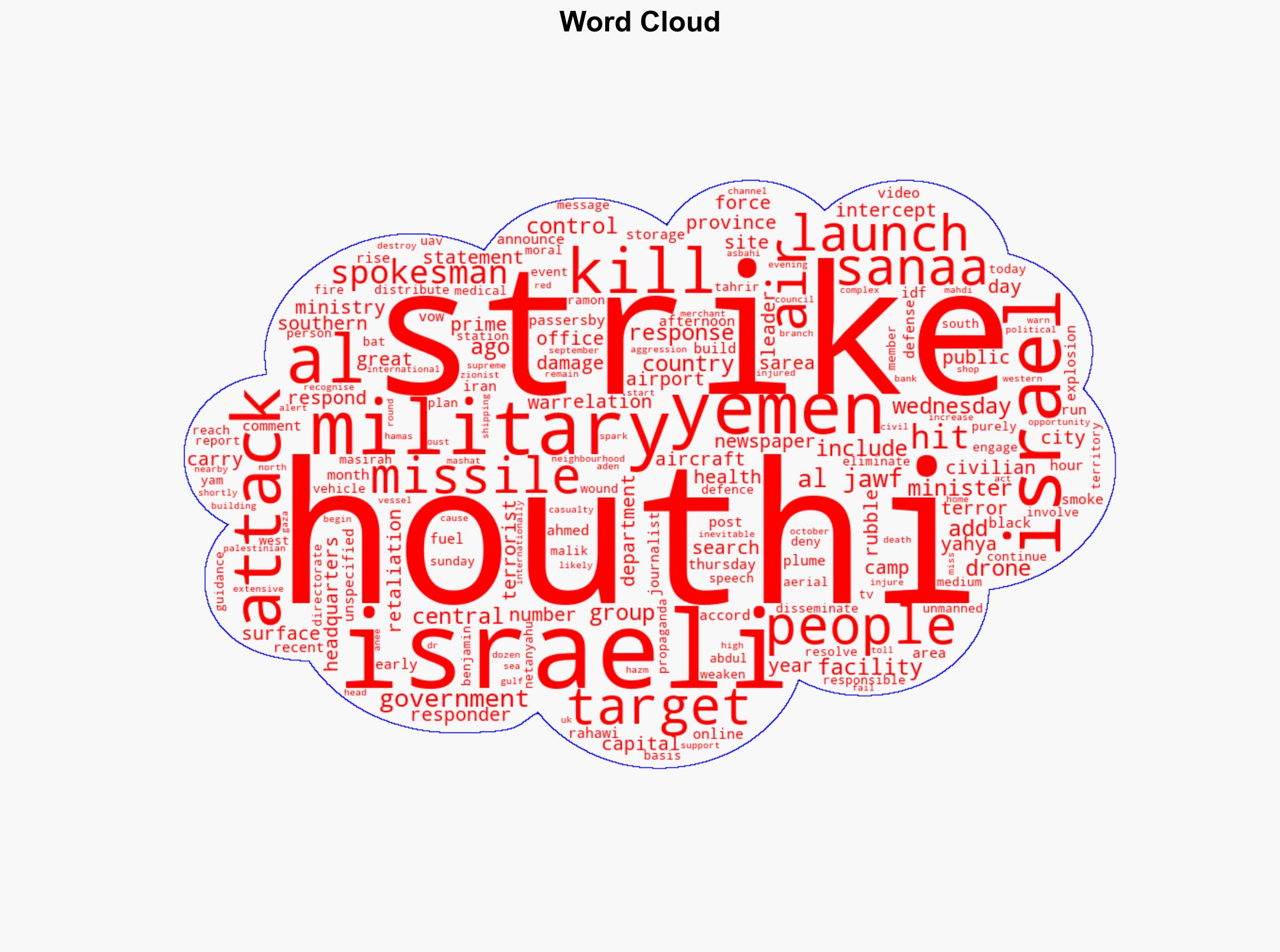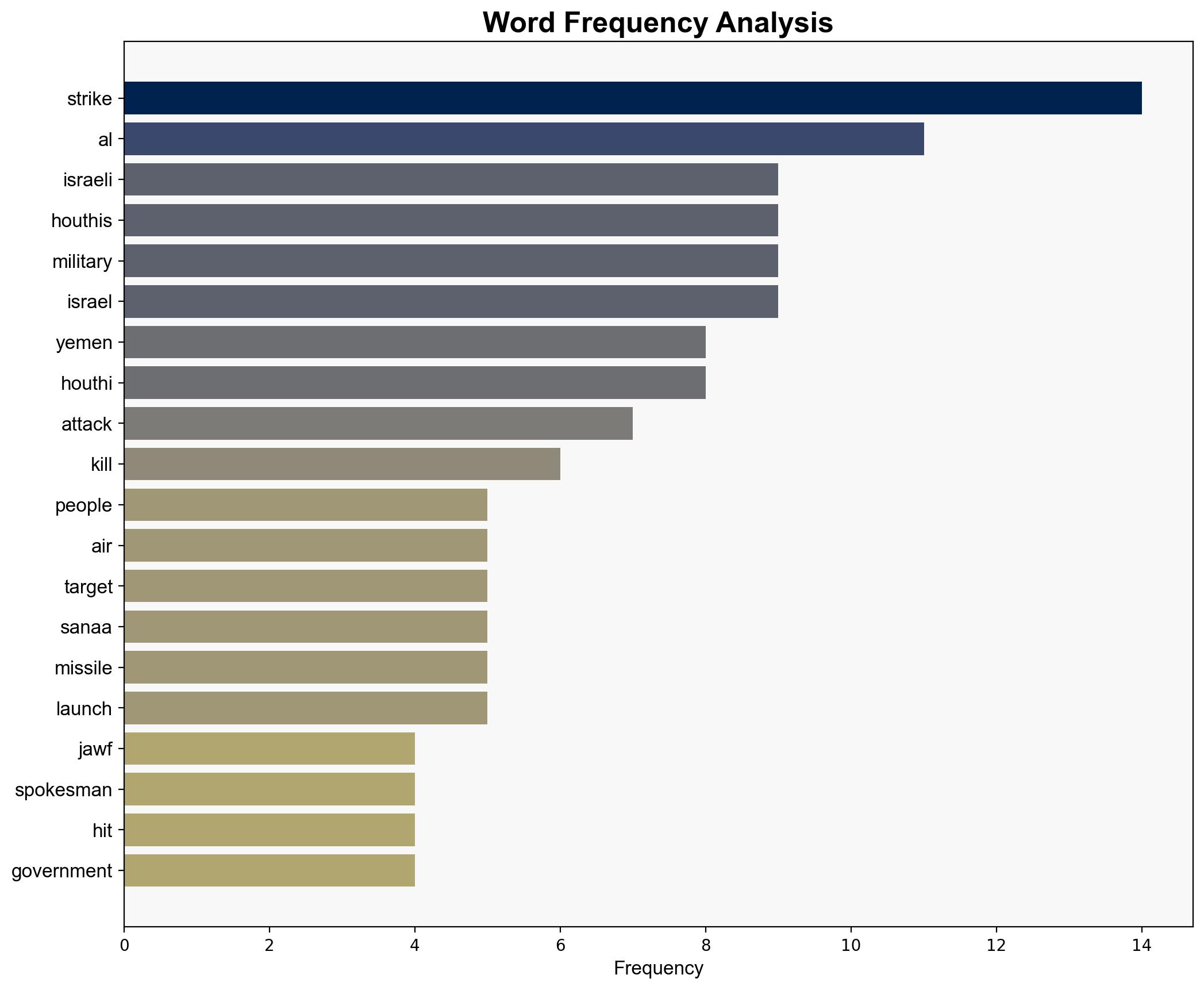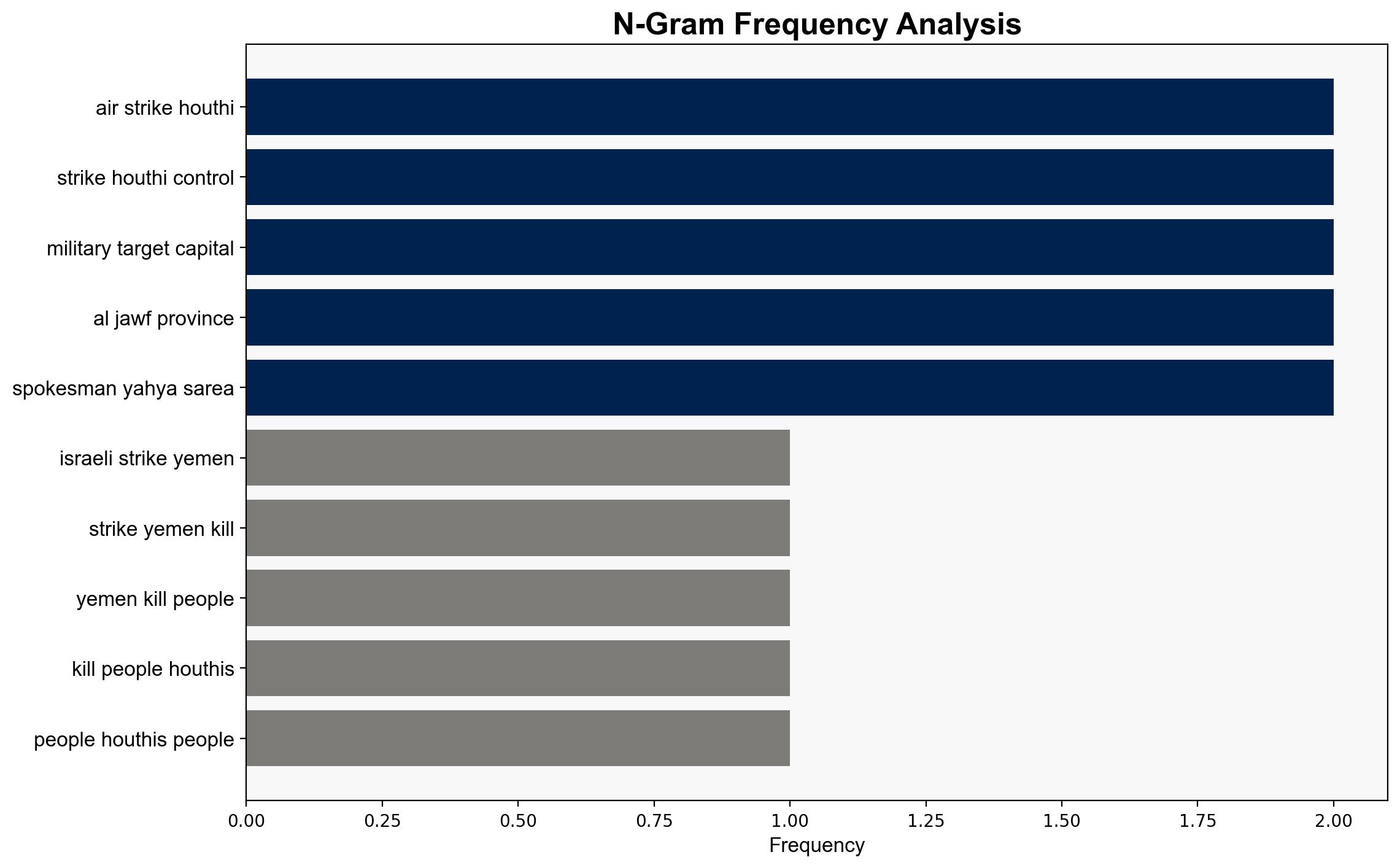Israeli strikes in Yemen kill 35 people Houthis say – BBC News
Published on: 2025-09-11
Intelligence Report: Israeli strikes in Yemen kill 35 people Houthis say – BBC News
1. BLUF (Bottom Line Up Front)
The most supported hypothesis is that the Israeli strikes in Yemen were a direct response to Houthi missile and drone attacks on Israeli territory. This hypothesis is supported by the sequence of events and statements from both Israeli and Houthi sources. Confidence in this assessment is moderate due to the complexity of regional dynamics and potential biases in reporting. It is recommended to enhance intelligence-sharing with regional partners and prepare for potential retaliatory actions by the Houthis.
2. Competing Hypotheses
1. **Hypothesis A**: The Israeli strikes were a preemptive measure to neutralize imminent threats from Houthi-controlled areas, specifically targeting military infrastructure to prevent further attacks on Israel.
2. **Hypothesis B**: The strikes were primarily retaliatory, aimed at deterring future Houthi aggression following recent missile and drone attacks on Israeli targets.
Using the Analysis of Competing Hypotheses (ACH) 2.0, Hypothesis B is better supported due to the timing of the strikes following Houthi attacks and the public statements by Israeli officials emphasizing retaliation.
3. Key Assumptions and Red Flags
– **Assumptions**: It is assumed that both Israeli and Houthi statements are accurate reflections of their strategic intents. There is also an assumption that the reported targets were indeed military in nature.
– **Red Flags**: The possibility of misinformation or propaganda from both sides could skew perceptions. The lack of independent verification of the targets hit raises concerns about the accuracy of casualty figures and target descriptions.
4. Implications and Strategic Risks
The escalation between Israel and the Houthis could destabilize the broader Middle East region, potentially drawing in other regional actors. There is a risk of increased attacks on international shipping routes in the Red Sea and Gulf of Aden, which could disrupt global trade. The psychological impact on civilian populations in both Yemen and Israel could exacerbate tensions and fuel further conflict.
5. Recommendations and Outlook
- Enhance maritime security measures in the Red Sea and Gulf of Aden to protect international shipping from potential Houthi attacks.
- Strengthen diplomatic channels with regional partners to de-escalate tensions and prevent further military confrontations.
- Scenario Projections:
- **Best Case**: Diplomatic interventions lead to a ceasefire and reduction in hostilities.
- **Worst Case**: Escalation leads to broader regional conflict involving multiple state and non-state actors.
- **Most Likely**: Continued tit-for-tat strikes with periodic escalations, maintaining a high level of tension.
6. Key Individuals and Entities
– Benjamin Netanyahu
– Yahya Sarea
– Abdul-Malik al-Houthi
– Mahdi al-Mashat
– Ahmed al-Rahawi
7. Thematic Tags
national security threats, regional conflict, counter-terrorism, Middle East dynamics





